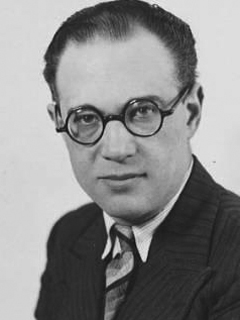
Publication details
Publisher: Springer
Place: Berlin
Year: 1997
Pages: 55-64
Series: Contributions to Phenomenology
ISBN (Hardback): 9789401062879
Full citation:
, "Phenomenalism, idealism and Gurwitsch's account of the sensory noema", in: To work at the foundations, Berlin, Springer, 1997


Phenomenalism, idealism and Gurwitsch's account of the sensory noema
pp. 55-64
in: Robert Stufflebeam (ed), To work at the foundations, Berlin, Springer, 1997Abstract
The relation between phenomenology and idealism was something a number of those around this table puzzled over here back in the 60's. Professor Gurwitsch used to argue persuasively and, I think, correctly that neither perceived objects nor perceptual noemata can be correctly thought of as eide in Husserl's sense of that esoteric word. Yet one thing which makes his meaning of the word so very abstruse is the fact that Husserl entirely agrees with this conviction yet speaks all the while of the noematic objects of perceptual experiences as ideals [i.e., Ideen im Kantischen Sinn].1 From the late 1920's throughout his distinguished career, Gurwitsch argued, if I read him correctly, that the description of the perceptually meant object need not refer to an idea of the object which would be distinct from the sense or meaning of the object; the perceptual noema has, he insisted, no such constituent.
Cited authors
Publication details
Publisher: Springer
Place: Berlin
Year: 1997
Pages: 55-64
Series: Contributions to Phenomenology
ISBN (Hardback): 9789401062879
Full citation:
, "Phenomenalism, idealism and Gurwitsch's account of the sensory noema", in: To work at the foundations, Berlin, Springer, 1997


